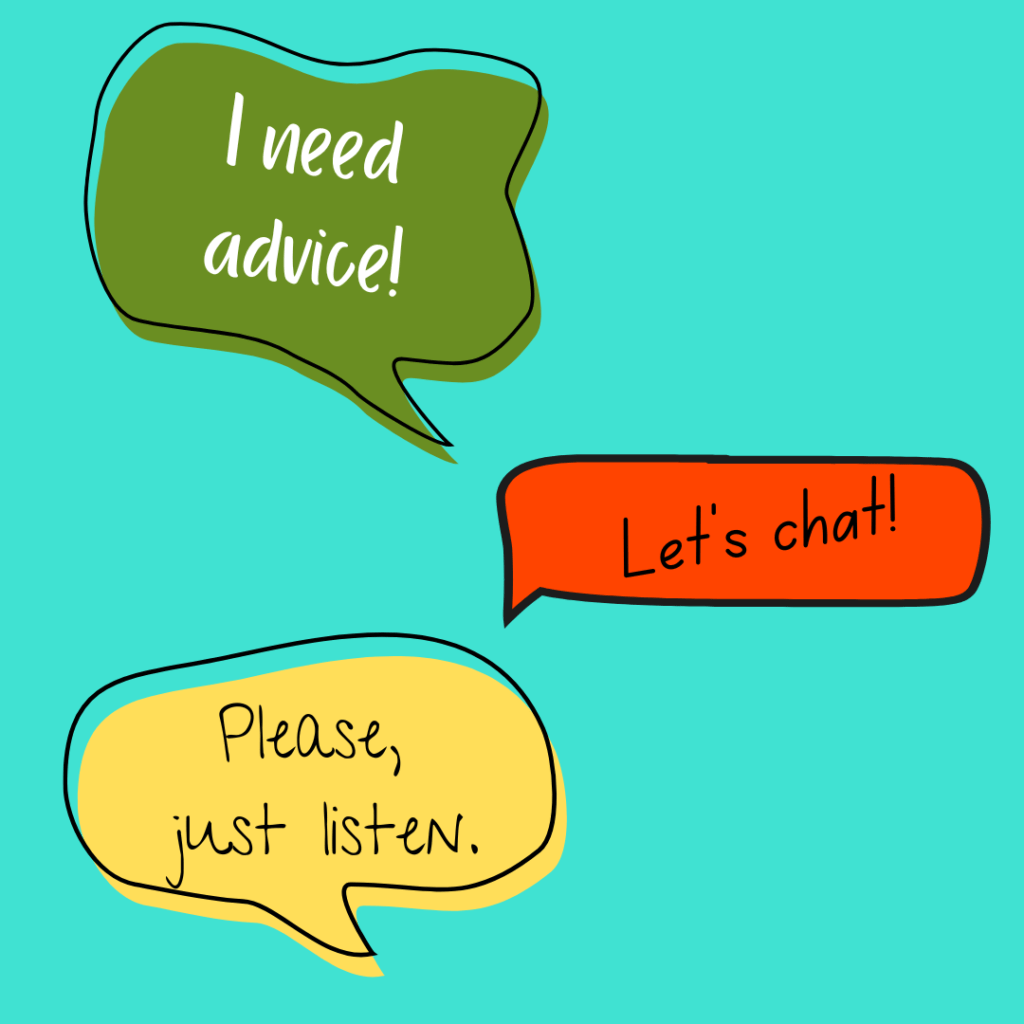
Have you ever wondered if you accidentally stumbled into the wrong conversation? Let’s say a family member or good friend shares something emotional with you. Immediately, because you care for this person, you suggest what should be done to rectify the situation and you are met with something less than enthusiasm. You’ve probably gone into the logical, fix-it conversation when you were supposed to be in the emotional/empathetic one. How were you supposed to know? And there’s also the social, involves-people-and-events conversation. See how easy it is to land in the wrong place?
I had an engineer in one of my classes who confided in me that he learned early on in his marriage, when his wife came home with a problem from work, he would ask if she wanted him to help fix it or just listen.
In order to be a more receptive listener and effective problem solver, pay attention to which conversation you’re in. If someone asks for advice, it’s a no-brainer you’re in the practical, get-answers conversation. If they come from an emotional place your job is to start off from an empathetic perspective, and then there’s a good chance you can move into a conversation to help get resolution, but you won’t know unless you’re really listening.
And if someone wants to share social information then obviously, you’re not there to fix or even empathize, you’re just someone they love to share information with. In this case be sure you aren’t being hijacked into dropping what you’re doing to listen. People lose 1.5 months a year on colleagues who interrupt, so if necessary be sure and set boundaries.
It would be wonderful if people announced which conversation they wanted to pursue, but since that’s not the case, and most of us aren’t mind readers, paying attention at the get go regarding exactly where someone wants to go, can save time, frustration and is just a smart way to listen.


